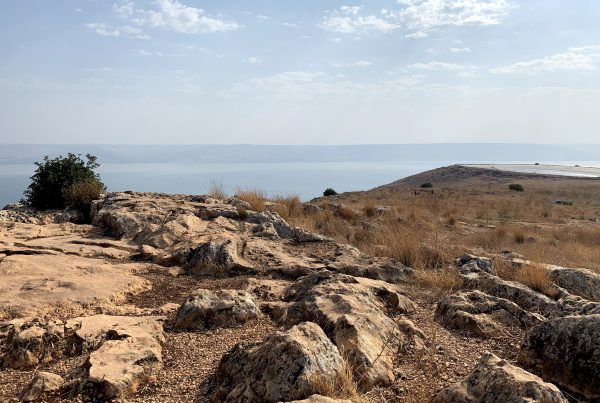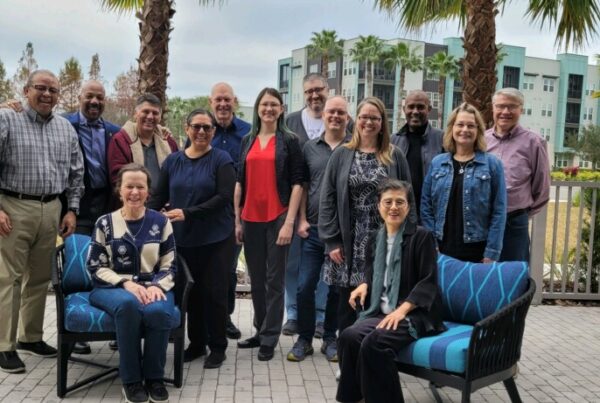Last fall, a new RCA classis quietly launched, but the excitement and momentum surrounding it resounds loud and clear.
The name—International Classis of Texas—points to both the current reality and the vision for the classis.
“‘International’ states exactly what the composition is already,” says Rev. Dale Assink, executive strategist for the Regional Synod of the Heartland, which launched the new classis. “A majority of the churches are Spanish-speaking ministries. We’ve also had contact with a leader who is relocating to Austin, Texas, and would like to plant a Chinese church there, so it really will be international. ‘International’ also points to our existing connections with a number of leaders in Argentina. We will continue those relationships. And the goal is to have RCA churches and classes in Argentina and elsewhere.”
The inclusion of “Texas” in the classis name is also a both/and reference. The seven church plants and one organized church in the classis are based in Texas and have international ties: RCA City Church (Houston), Iglesia Reformada Gracia Latina (Round Rock), Path, Truth, and Life (Katy), Iglesia Remanente de Gracia (Mission), Iglesia Reformada Luz del Valle (Mission), Iglesia Cristiana Alianza RCA (Pharr), Iglesia Aliento de Vida (Pharr), and Rockhills Church (San Antonio). There are a growing number of RCA connections in the state. Five new RCA churches in Texas, organized in November, are anticipating joining the new classis next year. The churches are currently part of Classis of the Americas, but need the approval of a General Synod to transfer across Regional Synod lines.
However, Rev. Fabio Sosa, mission advancement director for the Regional Synod of the Heartland, is clear that geography is not a limitation for this classis—and that it will not just be a Hispanic classis.
“We’re going to have churches and pastors who are Hispanic in the classis, but it does not have the characteristic of saying that this is a Hispanic classis. We will start with these churches in Texas, then expand. We’re talking with churches in Washington, D.C., and with churches in Latin America and Africa,” he says, via Spanish–English translator Rick Clark, who also serves as project manager for Central Plains Classis. “We need to be able to connect with the global church. The more we deal with churches on an international level, we begin to realize that things are not going to be the same, cannot be done the same way as we have done domestically.”
Assink says the new classis points to a new reality for the RCA.
“We are witnessing a movement of God that is so awesome and future-changing! For us it has been worth all the adjustments,” he says. “The International Classis of Texas really becomes a symbol of the new season of how God is calling the RCA into the future. It’s very diverse and free of racism—that’s a challenge for all of us: to be accepting of other cultures. The RCA is no longer just North America. The new classis represents the challenges of working cross-culturally and internationally. It opens a new chapter of credentialing new leaders, the majority of whom are bivocational. God is expanding us in new and fresh ways.
“Texas is the Lone Star State—it’s the star that is alerting the denomination to something miraculous and new.”
A few other RCA classes also have international connections, such as Classis de las Naciones, which has enfolded a denomination from the Dominican Republic for a time until it can be independent and self-sustaining. (The original two-year time period has been extended.) Central Plains Classis has also been handling requests from leaders and churches in Argentina who want to join the RCA, as cited in this explanation of RCA international church planting initiatives.
Passing the baton
A number of churches from Central Plains Classis will soon transfer into the International Classis of Texas. Much of the momentum for the new classis comes on the heels of Central Plains Classis’s multiplication success in fulfilling—and surpassing—their vision of being 25 ministries by 2025. That vision was laid in 2018 when the classis was made up of 13 churches, each either in decline or plateaued; by 2022, the classis grew to be more than 40 ministries. (A few ministries have since transferred classes or withdrawn from the RCA.)
“With those new ministries, there was the opportunity for the Regional Synod of the Heartland to create a new classis,” says Assink. “Central Plains Classis has been a very key assembly in this process, and forming a new classis really removes a lot of those ministries from Central Plains Classis. They’re going through an adjustment process, while celebrating starting a new classis.”
In the coming months, there may be a joint service for the International Classis of Texas and Central Plains Classis—a passing of the baton, says Assink.
Preparing for more growth
The International Classis of Texas is itself a sign of growth for many in the Reformed Church in America, but it also stirs excitement for continued expansion—of making disciples who make disciples all over the world.
“What’s happening now has never happened before in the history of the RCA,” says Sosa. “And there are more churches ready to be organized. There’s a tsunami of churches coming.”
Churches currently in the pipeline to join the International Classis of Texas are in Connecticut and Argentina.
“People have been calling us. There are a lot of people in the pipeline who want to join from everywhere. It’s exciting,” says Rev. Dr. Andres Serrano, director of RCA church multiplication. “It’s what God called us to do, make disciples—through the Reformed tradition. The mandate has always been to make disciples from all over, from the Netherlands to South Africa, to India, to Colombia.”
How and why are these people and ministries coming to the RCA? Theology and connection are key, say those involved in church multiplication efforts.
“Over and again, I’ve seen these pastors articulate three things: they’re lonely and working hard with full-time jobs while planting a church. They need the support, so the relationship has attracted them. The theology of grace is also attractive; they’ve heard in their context about works, works, works. The third thing is structure—what do I do if I’m starting a new church? The process the RCA has can be intimidating, but it helps them with the consistory, the role of elder, and more,” says Rick Clark, project manager for Central Plains Classis.
“They love Reformed tradition and theology; they see a value in our theology. It’s biblical, and it’s strong. They value the creeds,” confirms Serrano.
“Each person connects uniquely with the RCA, but by and large they come as a result of relationship,” adds Assink. “Once they get connected with Reformed theology and relationally, they love it and bring other friends into it.”
Credentialing leaders from other countries and continents does pose challenges. During General Synod in recent years, some delegates have raised concerns about equity and colonialism when discussing welcoming churches outside the U.S. and Canada.
“A majority of these pastors come from a context that is not Reformed, so we have to verify their previous training and see what further training they need,” says Sosa. “Our mission is that they would understand who we are, Reformed theology, and RCA structure, and also give them tools for success in planting. Some of the pastors have already been ordained in a different denomination, so we transfer their ordination to the RCA. But all pastors go through a time of training with their classis.”
To assist with equity, Central Plains Classis established an international team to discern how to credential pastors and bring them into the RCA.
“There’s been lots of discerning and lots of prayer,” says Clark, who serves on this team. “Some of these pastors have 30 years of ministry experience, then have to do X, Y, and Z to join the RCA. The team discerns how to maintain our high standards but also what is right.”
“This is one of the things the restructuring team is asking for—to examine the credentialing requirements,” says Assink. “The Ministerial Formation Certification Agency, the Pastoral Formation Oversight Board, the [General Synod] professorate, and more are all coming together to make that credentialing process equitable.
“It’s a new day for the RCA,” he says. “The International Classis of Texas really does represent an exciting future.”





